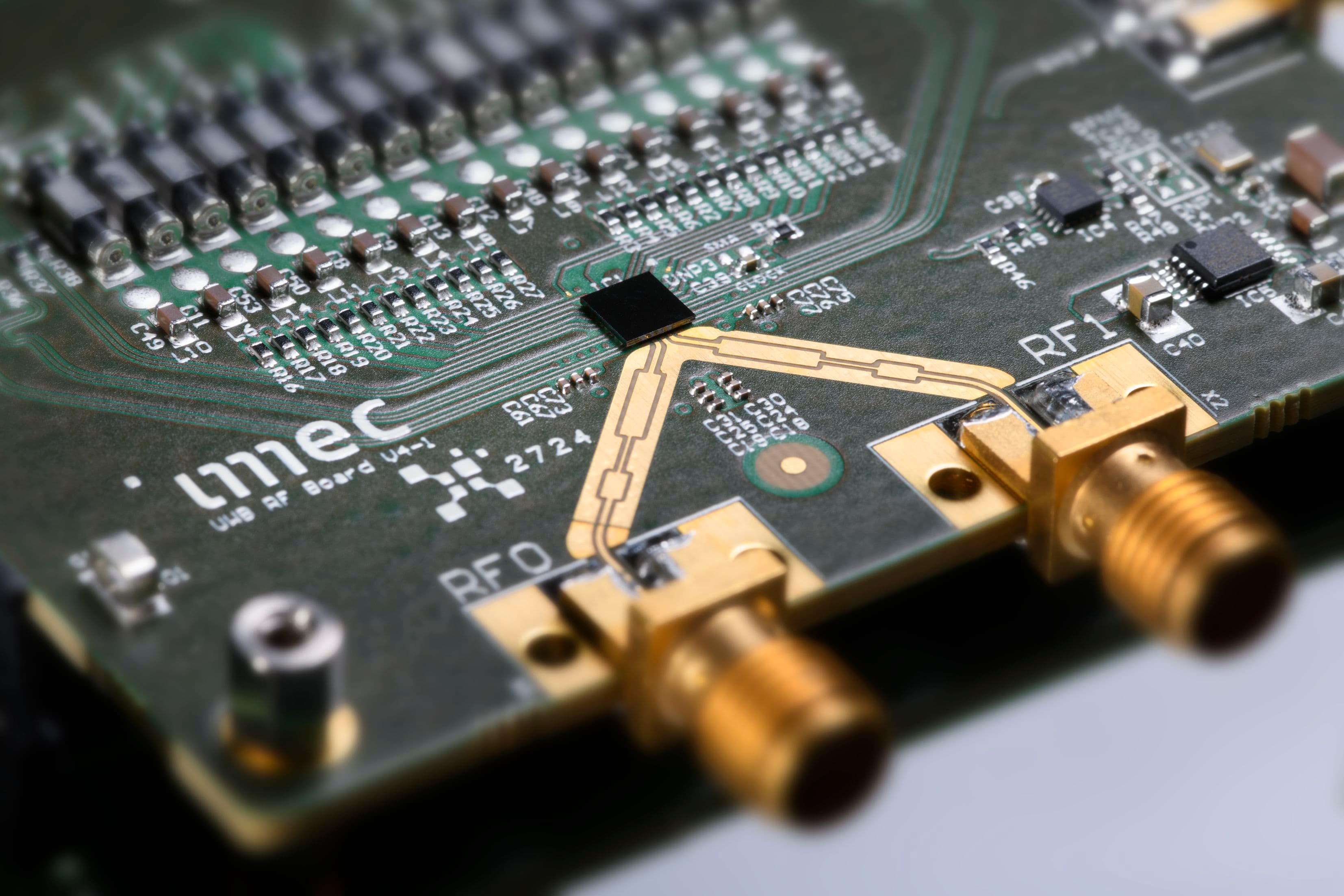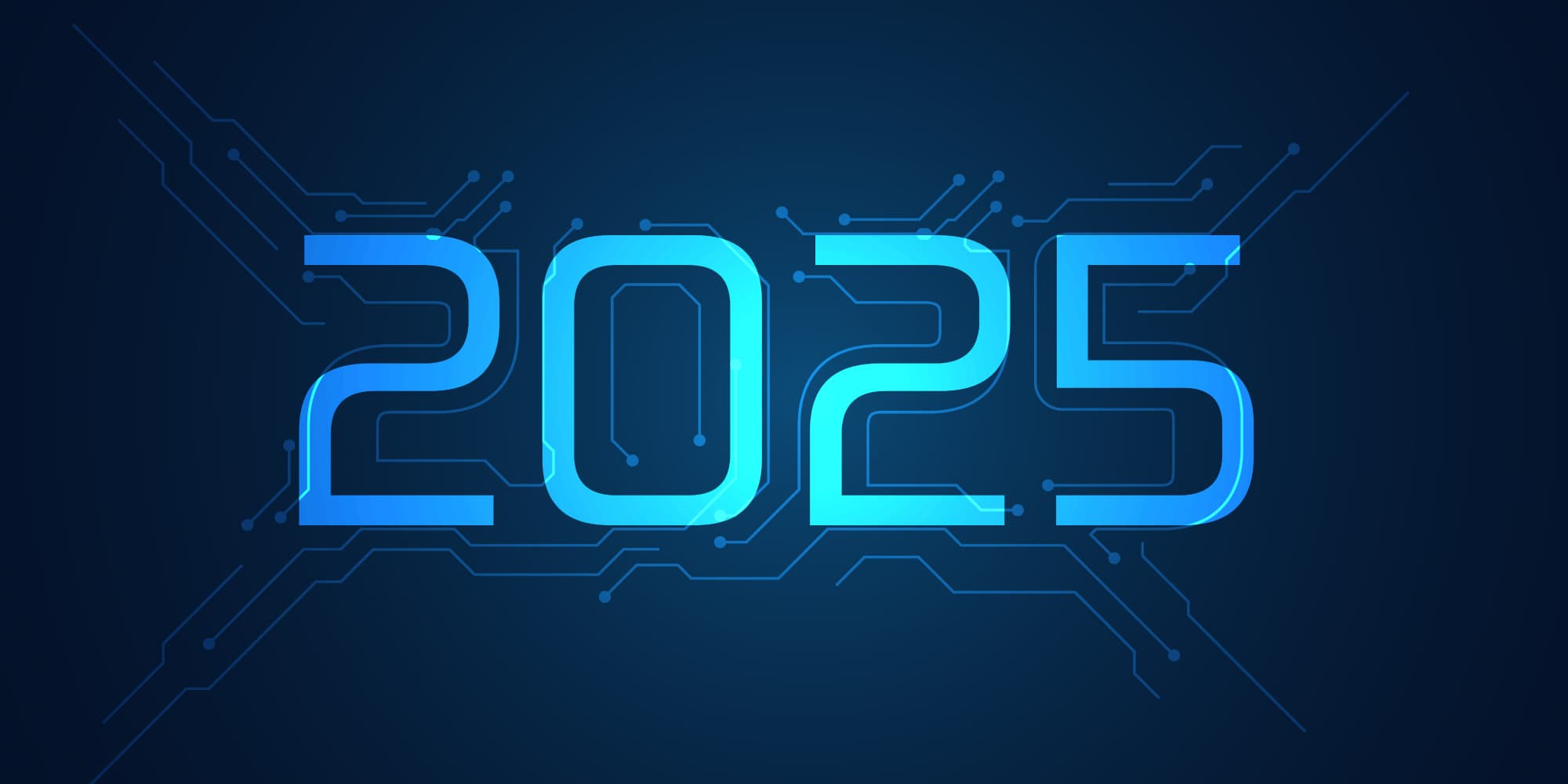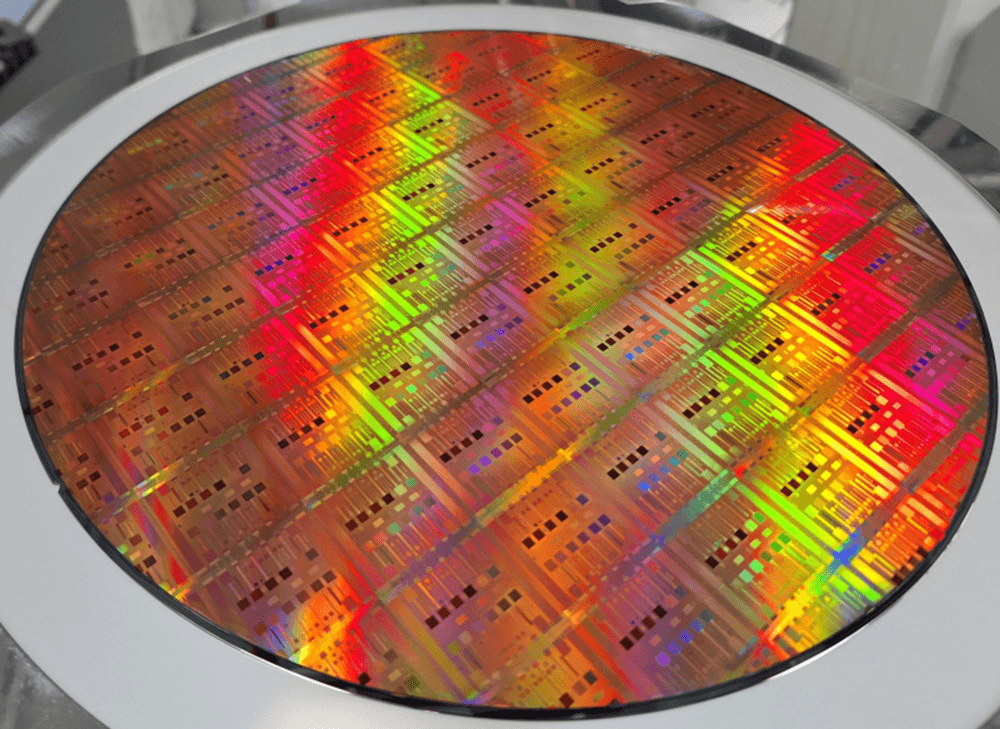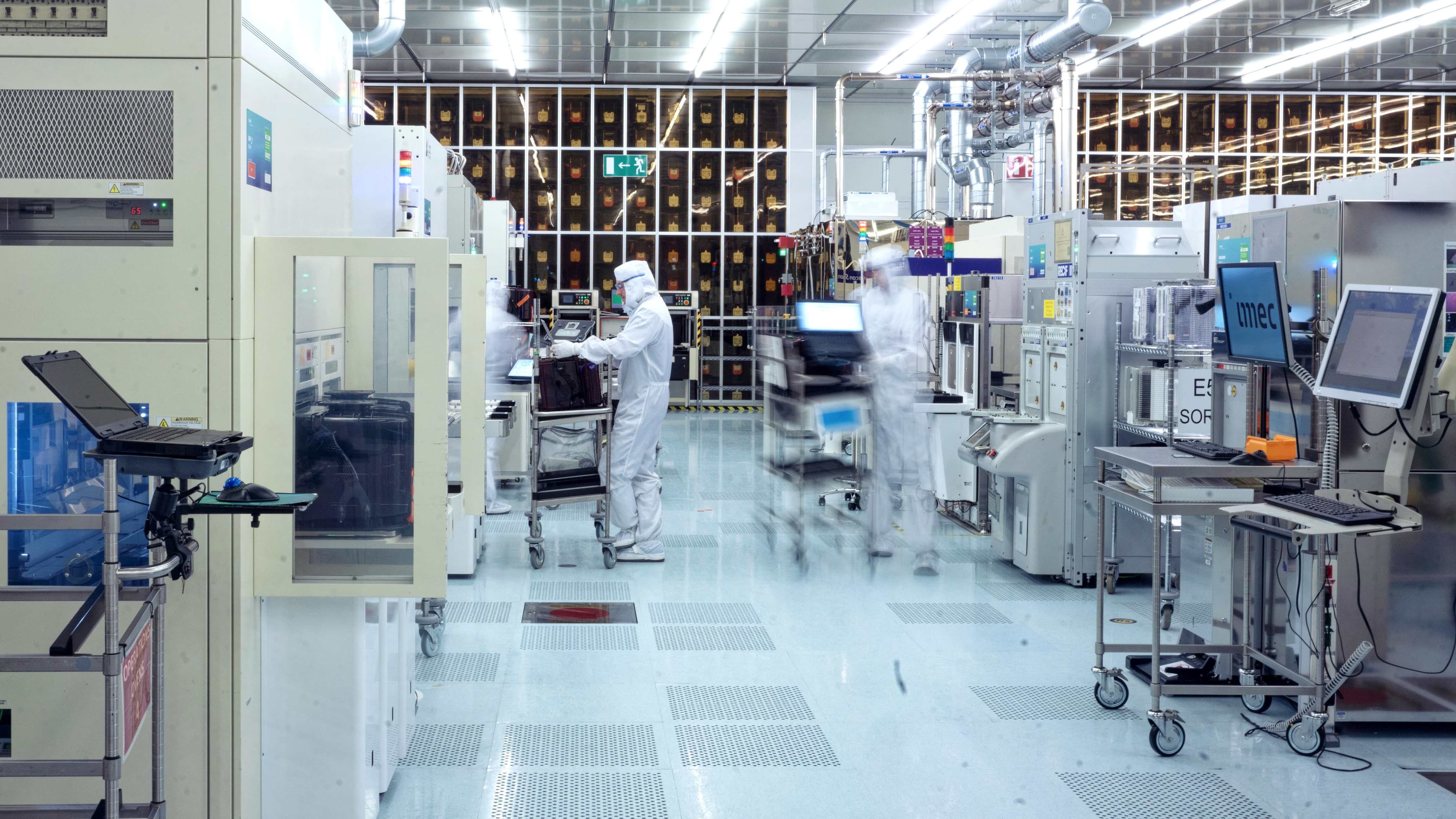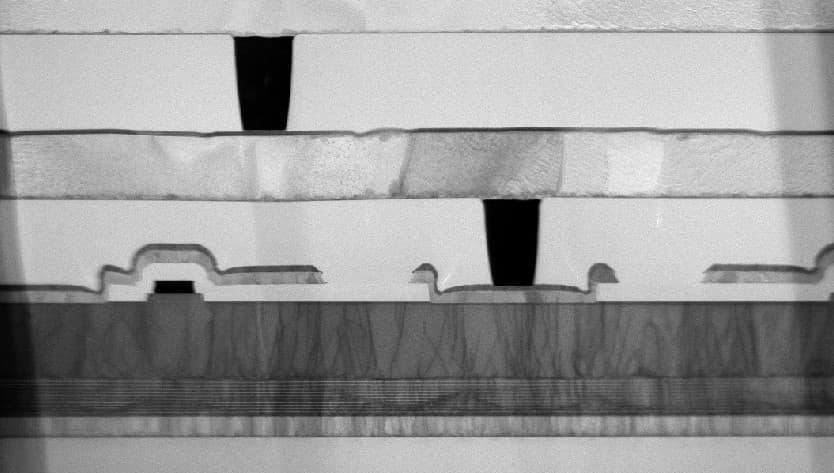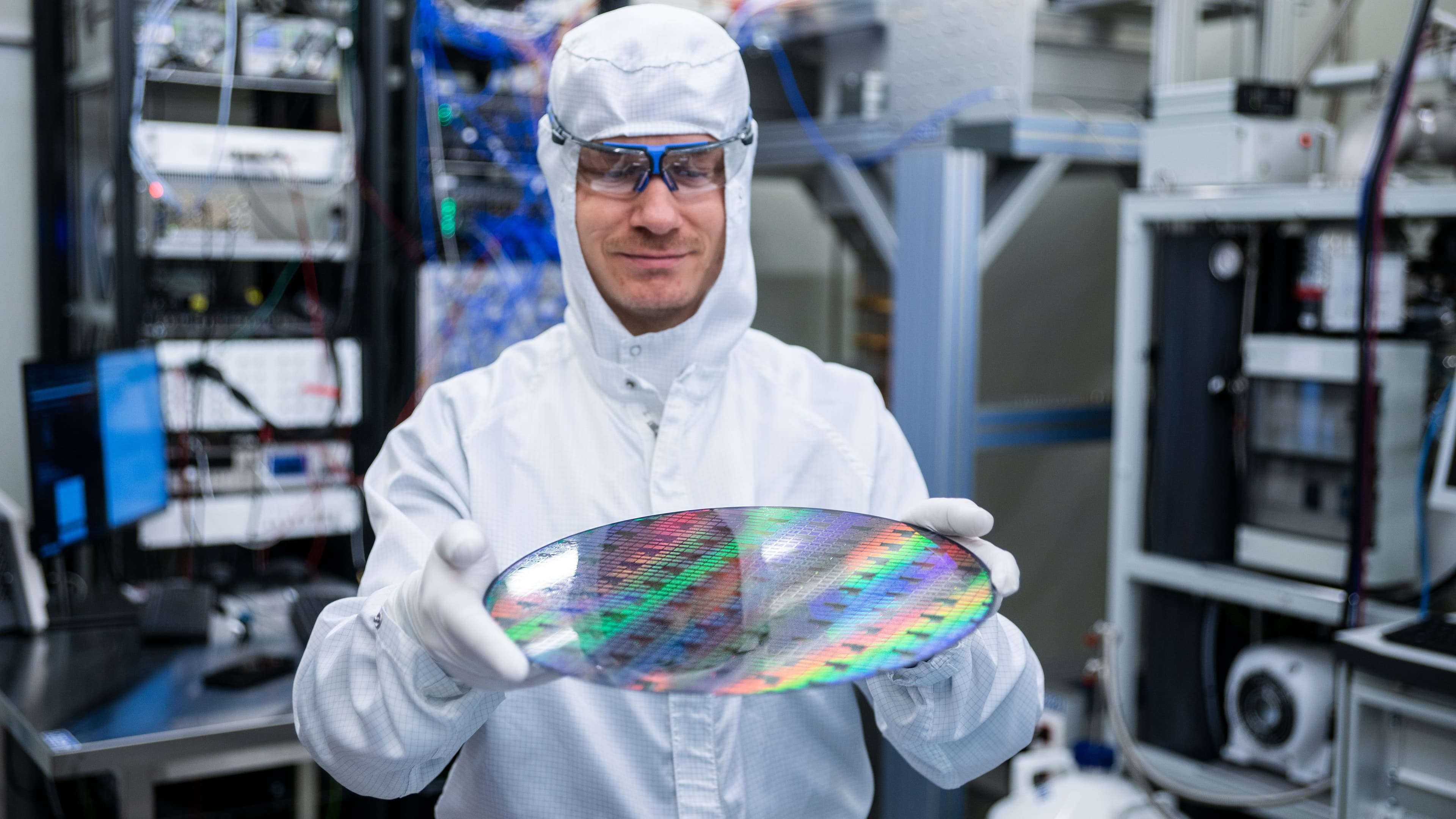Piet Desmet, Scientific Director Smart Education
In the last decade, technology has revolutionized almost every aspect of our daily lives. It has not only changed the way we live and work, but also the way we communicate, maintain friendships and share memories. Thus, it only makes sense that it will also change the way we learn, in all stages of our lives. Recent technological innovations create limitless opportunities for education in the broadest possible sense, involving all kinds of populations in all kinds of contexts (e.g. at school, at home, on the job, or in a sports club, etc.) However, to fully explore these possibilities we need to venture beyond our own field of expertise and bring together researchers, end users (learners, teachers, HR managers in the corporate training context, etc.), the EdTech and related industries as well as other stakeholders. In collaboration with these partners, we can create new educational methods and technologies that meet the changing needs of modern-day learners.
Launching imec’s Smart Education program
Imec has long been exploring the potential of educational technology (EdTech). Not only have we been experimenting with it in our own learning institution, i.e. imec.academy, which uses a blended mix of e-learning and face-to-face sessions to offer professional courses to students across the world, but our researchers at ITEC, an imec research group at KU Leuven, have also built up extensive expertise in educational technology and new teaching methodologies.
In 2017, we took our efforts to the next level and proudly launched our brand-new Smart Education program. The strength of this new program is that it is a collaborative effort – with the support of the Flemish government – that brings together researchers from across imec (including research groups at several Flemish universities, i.e. KU Leuven, Ghent University and Vrije Universiteit Brussel), schools, teachers, and partners from the EdTech industry. In this story, imec functions as the hub that brings these stakeholders together in a creative and supportive ecosystem. By involving schools and universities as providers of education in this research program, we can immediately put new insights and solutions to the test in real-life contexts, thus generating valuable feedback for both researchers and the industry while immediately also contributing to the actual implementation of smart education.
Unravelling the individual’s learning process
Today’s learners are looking for tailor-made learning solutions that enable them to acquire knowledge in an optimal and personalized way. To enable this, we first need to unravel how individuals learn, by means of sensing technologies, data science and behavioral research. At imec, we already have the basic technology to do this. We will, for instance, equip a mobile learning environment with sensors to track students’ attention and stress levels in real time. This way, we can truly understand how they experience the learning process. When do they become distracted? What can teachers do to regain their attention? What creates stress? These insights can then be translated into concrete recommendations for schools and teachers, but also into smarter EdTech applications.
Facilitating differentiation with adaptive learning technology
Differentiation has been the buzzword in teacher training for the last decade, but many teachers and lecturers struggle to provide personalized training in the classroom. Learners still usually receive more or less the same input and assignments: they listen to the same lecture, do the same exercises, and/or use the same textbook. As a consequence, most education is targeted at an imaginary ‘average’ student, putting both stronger and weaker
learners at a disadvantage. Modern technology and data can give us the tools to create a personalized and smarter, more effective learning experience, even when all participants are sitting in the same classroom.
Within the Smart Education program, we are researching and developing supporting technology for this kind of advanced personalized and adaptive e-learning platforms. For instance, in 2017, we evaluated adaptive educational games with primary school children. All pupils play the same game, which functions an attractive learning environment, but depending on their previous answers they are presented with easier or more difficult challenges, allowing them to grow at their own speed.
In order to realize this kind of solutions, we are building on a strong track record in educational statistics (psychometrics), educational data mining and instructional psychology. But tackling the many challenges of adaptive educational solutions requires an even wider interdisciplinary collaboration, bringing together research partners in statistics, computer science, educational and cognitive sciences, and human-computer interaction – to name a few key areas of expertise – with industrial partners than create a large-scale test bed, ideally in realistic environments. The imec.ICON project LEAPS is an example of such a collaboration. Within this project, which runs until September 2018, we are developing a self-learning analytics system for adaptive learning. The project also involves research on dashboards that visualize the learning process with a view to empowering teachers, learners, their parents and other coaches. After completion of the research project, the industrial players can bring the support system to the market, for instance, through integration into assistive software for struggling readers, supportive software for professional communication, and educational games.
As part of the imec.icon project LEAPS, we tested adaptive learning technology with primary school children.
Technology-enabled interactive and collaborative learning
Another critical component of an effective learning process is collaboration and interaction. Unfortunately, our traditional classrooms in secondary schools or universities are not designed to stimulate this: students usually sit together in a classroom, tables organized in rows, facing a teacher who uses a blackboard or maybe a smartboard, not exactly the most learner-centered tools. To create a more interactive learning environment, we need a different kind of classroom: with a different physical set-up and with supportive technology that truly stimulates group work.

In 2017, we launched Edulab, a living lab and research infrastructure for interactive and collaborative learning at the KU Leuven Kulak campus in Kortrijk. It provides a technology-enabled classroom, designed to facilitate interaction and collaboration.
Students can sit together in groups and share the screen of their own device with their peers and/or teacher, allowing them to work together more efficiently. Within the project that led to the creation of Edulab, we also developed an interactive learning platform, including an app to make lectures more interactive. In big lecture halls, students are often reluctant to ask questions. With this app, they can ask their questions anonymously (‘silent questions’) via their smartphones. They can also ‘like’ each other’s questions to indicate that these address a general concern. In addition, the lecturer can set up polls or quizzes to test students’ understanding in real-time, making it easier for them to get instant feedback from their students, even when teaching large groups.
Making the virtual classroom real
Another important trend in both professional training and in university-contexts is the rise of remote learning, meaning that the students and/or teacher are not all in the same physical location – or learning at the same time, for that matter. Learners attending a class from a different location frequently struggle more to stay focused, because they feel less involved. To remedy this, we have set up the imec.ICON project Lecture+, a collaboration that brings together experts in video processing and collaborative solutions, visualization, data analysis and cloud computing. The final aim is to develop a cost-efficient (and thus scalable) solution for multilocation learning that enhances user involvement by facilitating interaction and collaboration. For example, by enabling remote students to give real-time feedback on how they are experiencing the course or by providing low-treshold opportunities for them to ask questions. This way, multilocation learning goes beyond one-way traffic and enables true interaction between the teacher and the students, regardless of their physical location.
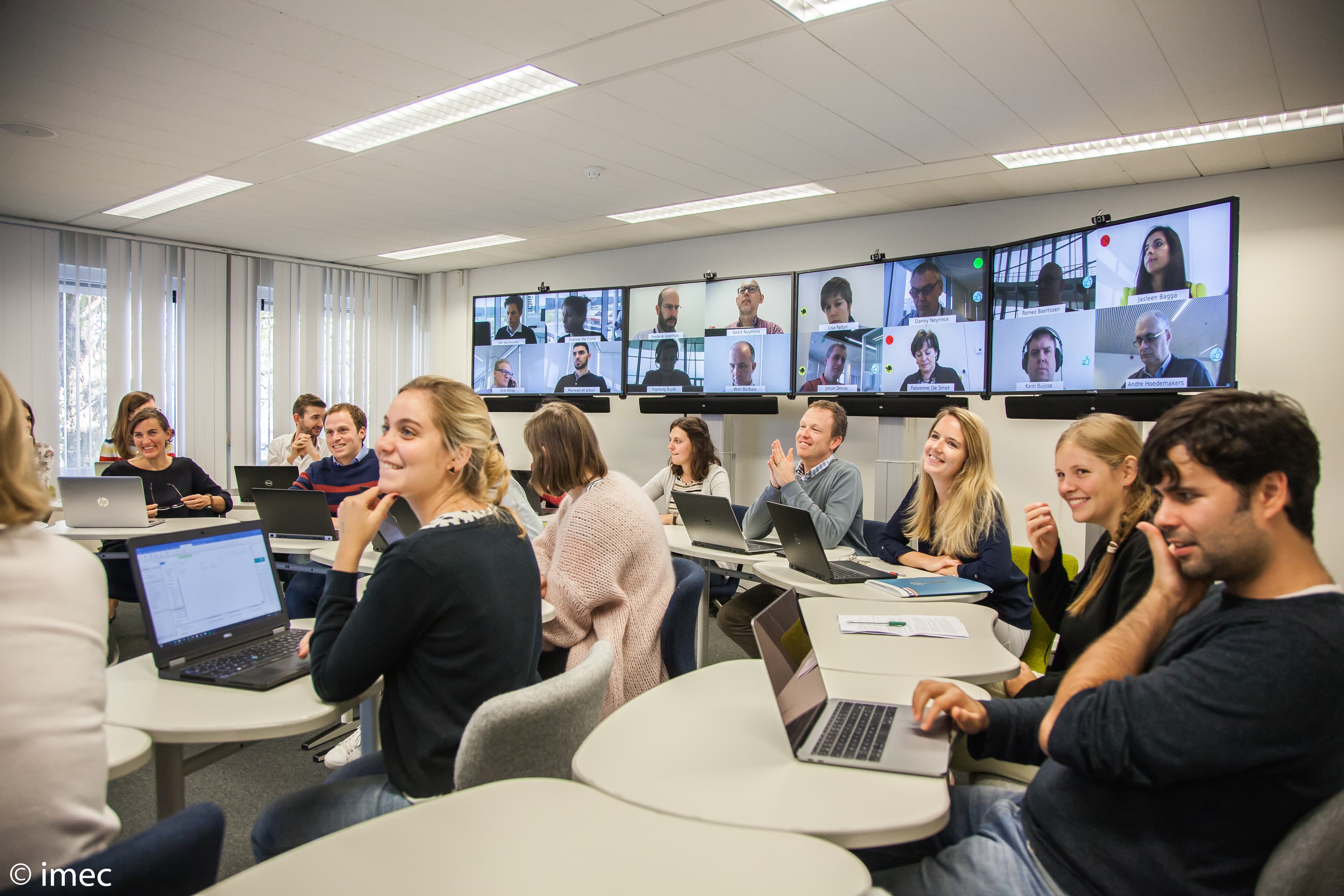
At our Edulab, we take multilocation learning to the next level by enabling remote students to participate actively.
Paving the way for smarter education
Our Smart Education program establishes an interface between researchers, companies and educational institutions, stimulating collaboration between them. With the support of the Flemish government, we also aim to directly impact the educational field in Flanders, fostering the implementation of EdTech and new teaching methodologies at all levels of education.
Technology will definitely have a strong impact on education. The blackboard will probably become a thing of the past; it will be replaced by more intelligent technologies. This does not mean that we do not need teachers anymore. Motivated, innovative teachers will always remain at the core of high-quality education, and technology can help them by taking over some of the more routine tasks and by stimulating a more personalized, interactive and more effective learning process. It will give us the tools and resources to revolutionize and optimize the way we learn, helping us to provide better, more high-quality education. In the end, that is the principal aim of imec’s Smart Education program.
Want to know more?
Piet Desmet coordinates imec’s Smart Education research program. He also leads ITEC, an imec research group at KU Leuven devoted to impactful digital innovation in education and related fields. He is an expert in computer-assisted (language) learning & educational technology. At KU Leuven, he serves as vice-rector responsible for educational technology & the KU Leuven KULAK Kortrijk Campus.
Published on:
15 January 2018







